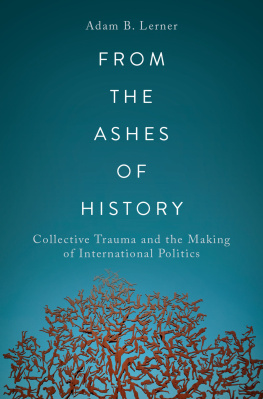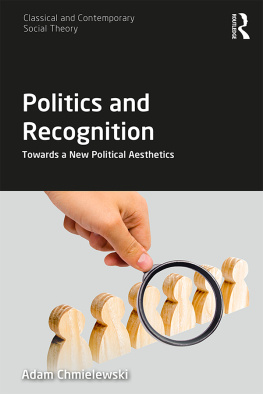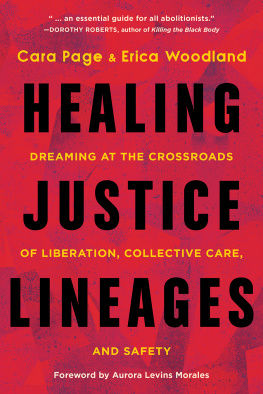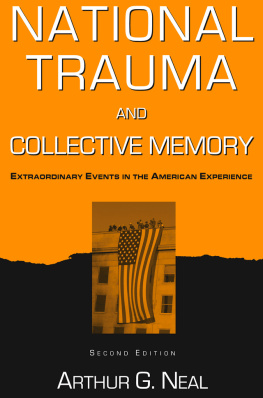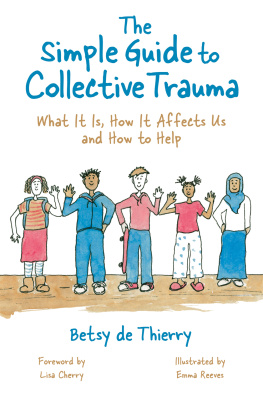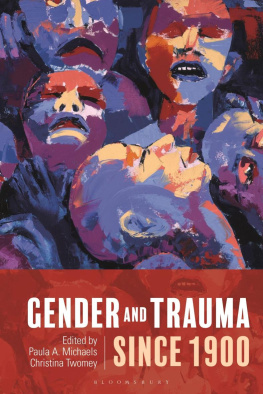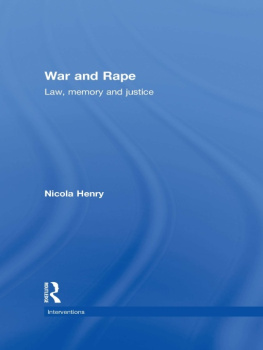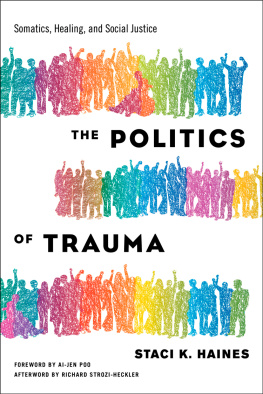From the Ashes of History

Oxford University Press is a department of the University of Oxford. It furthers the Universitys objective of excellence in research, scholarship, and education by publishing worldwide. Oxford is a registered trade mark of Oxford University Press in the UK and certain other countries.
Published in the United States of America by Oxford University Press
198 Madison Avenue, New York, NY 10016, United States of America.
Oxford University Press 2022
All rights reserved. No part of this publication may be reproduced, stored in a retrieval system, or transmitted, in any form or by any means, without the prior permission in writing of Oxford University Press, or as expressly permitted by law, by license, or under terms agreed with the appropriate reproduction rights organization. Inquiries concerning reproduction outside the scope of the above should be sent to the Rights Department, Oxford University Press, at the address above.
You must not circulate this work in any other form and you must impose this same condition on any acquirer.
Library of Congress Control Number: 2022930623
ISBN 9780197623596 (pbk.)
ISBN 9780197623589 (hbk.)
ISBN 9780197623619 (epub.)
DOI: 10.1093/oso/9780197623589.001.0001
Contents
This book represents the culmination of a multiyear journey across continents and scholarly disciplines. I am thankful to have had numerous guides and fellow travelers.
The research began in 2015 at the University of Cambridge. During my MPhil and PhD research (20152019), I was lucky to benefit from the mentorship of three fantastic scholars: Shailaja Fennell, Duncan Bell, and Yale Ferguson. Their kindness, support, and insight were paramount in formulating the ideas in this book, and I am deeply grateful to each of them. I was also lucky at Cambridge to meet three close friends working on related subjects: Sean Fleming, Jaakko Heiskanen, and Lucas de Oliveira Paes. All of them have become intellectual sparring partners and generously provided feedback on multiple chapters. Additionally, I would like to extend my thanks to Shama Ams, Anjali Bhardwaj-Datta, Joya Chatterji, Lorena Gazzotti, Avneet Kaur, David Lowe, Giovanni Mantilla, Jason Sharman, Ayse Zarakol, and Maja Spanuall of whom took part in this books ideation and refinement.
While doing archival research in India in 2018, I benefited from the support of the Carnegie Endowment for International Peaces India branch in Delhi, which provided research assistance during my tenure as a visiting scholar. I further benefited from the friendship and support of Satbir Bedi, Shashwat Silas, Sukrit Silas, and Neil Noronha. I would also like to extend my thanks to Vinod Jose and Hartosh Singh Bal, two mentors from my prior career as a journalist who helped me navigate Delhis archives, libraries, and politics.
Once I began my appointment at Royal Holloway, University of London, in 2019, this book benefited immensely from the support of wonderful colleagues. In particular, I want to single out Laura Sjoberg, who arrived at Royal Holloway after me but quickly became an ideal mentor and confidant. She read book chapters, helped me navigate revision and submission, and even provided vital good humor and encouragement during the worst periods of lockdown. I am similarly indebted to Ben OLoughlin and Michelle Bentleyfriends and mentors who provided advice, support, and feedback. I would also like to thank Antara Datta, Chris Hanretty, Sarah Childs, Thomas Stubbs, Daniela Lai, Dishil Shrimankar, and Oliver Heath for reading chapters of the manuscript and providing advice during its revision. For engaging with my work remotely and offering thoughtful feedback and guidance, I would like to thank Brent Steele, Medha Kudaisya, Maria Mlksoo, Lene Hansen, Karin Fierke, Patrick Thaddeus Jackson, and Dovile Budryte. Paul Beaumont, additionally, provided enormous help and good humor during the final stages of revision.
During the publication process, I was lucky to receive the guidance and wisdom of Oxford University Presss senior editor Angela Chnapkoa true champion of scholarly research. A thanks are also due to the three anonymous reviewers whose detailed comments helped improve the manuscript and see it across the finish line. Portions of were previously published in the European Journal of International Relations and Perspectives on Politics, respectively, and I am grateful to both journals for granting permission to adapt this work.
Finally, I am deeply indebted to my friends and family, scattered across the globe, who have provided their support, encouragement, and love throughout this process. In particular, I want to thank my mom (Lisa Horowitz), my dad (Bruce Lerner), and my sister (Kira Lerner), whose love and kindness kept me sane during a long and difficult research process. Partway through this journey, I was lucky to meet my partner, Allicen Dichiara, and adopt our dog, Moosethey have since become my family. Once they entered the picture, I couldnt have imagined writing this book without them.
Introduction
The varied origin stories that international relations (IR) scholars have proposed for their discipline all share one thing in common. Whether they refer back to the Peace of Westphalia following the Thirty Years War, the first great debate following World War I, or even Thucydidess early classical realist account of the Peloponnesian War, they all envision the international political arena as forged in the wake of mass violence. Even alternative, critical accounts that locate IRs roots in long-standing imperial hierarchies, the international slave trade, or the twentieth centurys wave of decolonization similarly implicate the structural violence of empire and racism, as well as the often violent expulsion of foreign rulers. These mythologized origins allude to the pervasiveness of mass violence in IR, with a role that extends well beyond inquiries into the disciplines roots. Many of the institutions that scholars of international politics studyincluding the borders that define states, the norms that delineate appropriate behavior, the organizations that manage interstate relations, and even the ideational lines between us and themsimilarly emerged due to tremendous bloodshed and oppression. Just as medicine tends to pay disproportionate attention to diseases of the body, IR tends to focus on diseases of world politics.
Yet despite the disproportionate attention mass violence receives, IR scholarship has a problematic tendency to accept its consequences at face value. Typically, scholars follow an implicit event model of mass violence, based on linear, sequential timingThis model understands violent episodes as having defined durations, beginning with identifiable dawns and culminating in conclusive dusks. According to such thinking, once a cataclysm finishes, its destructive consequences become readily apparent and, potentially, quantifiable. Interest is piqued as media report damages, often in the form of casualty counts, eyewitness testimonies, or visuals of destroyed property. Shortly after, experts estimate the costs of material damages, as well as a timeline and budget for repairs. Politiciansincluding international statesmen and stateswomencraft plans for reconstruction and rehabilitation. Citizens on the ground soldier on, finding ways to overcome difficulties and rebuild their lives. Over time, as infrastructure is repaired and victims physical wounds heal, politicians move on to new, more pressing issues. Mass violence thus fades from attention and is relegated to the past. Time stubbornly marches on.

